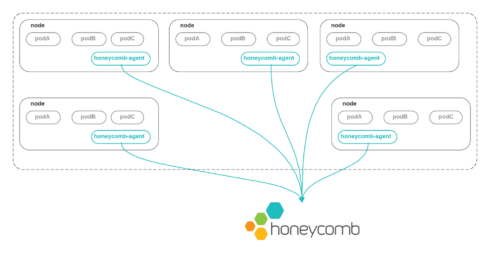
Honeycomb launched “Honeycomb for Kubernetes” to help engineers using Kubernetes identify and solve application issues by helping them understand the relationships between production code and the infrastructure layer.
The move is prompted by the CNCF’s 2022 Annual Survey, which shows the growing adoption of Kubernetes but highlights a gap in correlating application and infrastructure data, leading to operational challenges and decreased productivity for developers.
According to Honeycomb, infrastructure dashboards in application performance monitoring (APM) tools are useful for platform engineers overseeing Kubernetes, but they leave out important application context that would be needed to diagnose and fix software issues. This gap in correlating application and infrastructure data results in operational delays, resource strain, and reduced productivity, according to Honeycomb.
“It’s becoming clear that today’s monitoring tools frequently underserve developers, and worse, they create unnecessary tension between devs and platform engineers,” said Charity Majors, co-founder and CTO of Honeycomb. “This blind spot serves as yet another glaring signal that observability platforms are better equipped than APM tools to provide comprehensive, granular context into how code behavior impacts application performance.”
The new capabilities help teams differentiate between application and infrastructure issues and address potential bottlenecks between platform engineers and developers. This empowers teams to release more frequently, streamline migrations, promote developer self-sufficiency, and enhance overall productivity, Honeycomb explained.
Honeycomb for Kubernetes enables developers to link application requests with specific Kubernetes elements like pods, nodes, or cluster configurations. It simplifies data integration from Kubernetes through new instrumentation options for events, metrics, and trace attributes, including OpenTelemetry and a low-code, language-agnostic agent for comprehensive coverage.
Honeycomb for Kubernetes is now available to all Honeycomb users.








